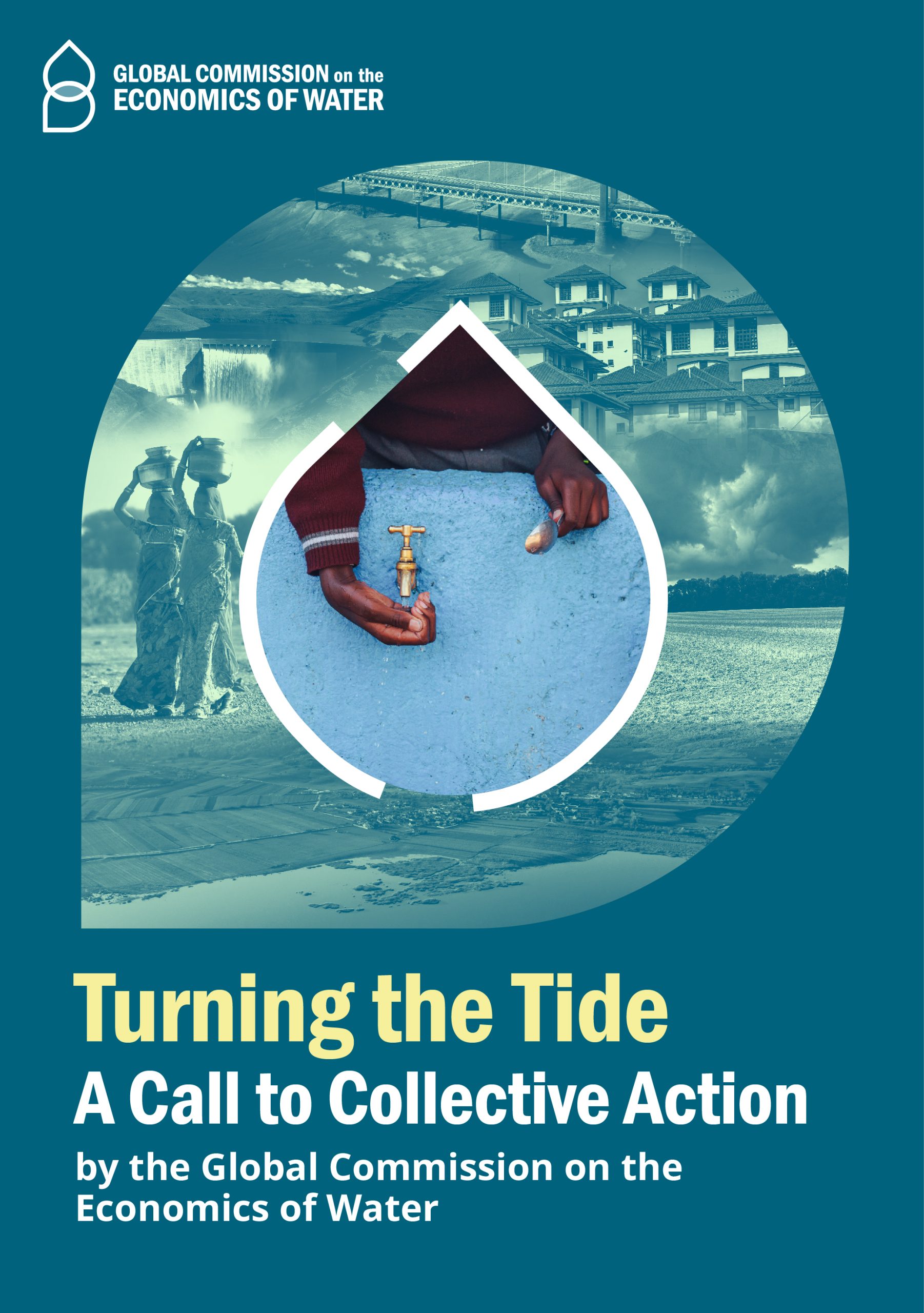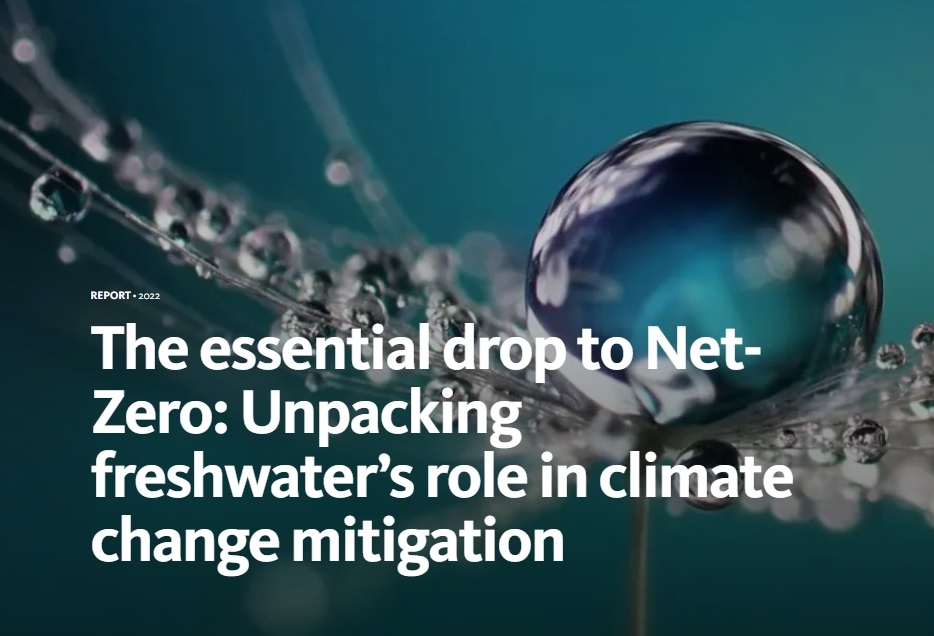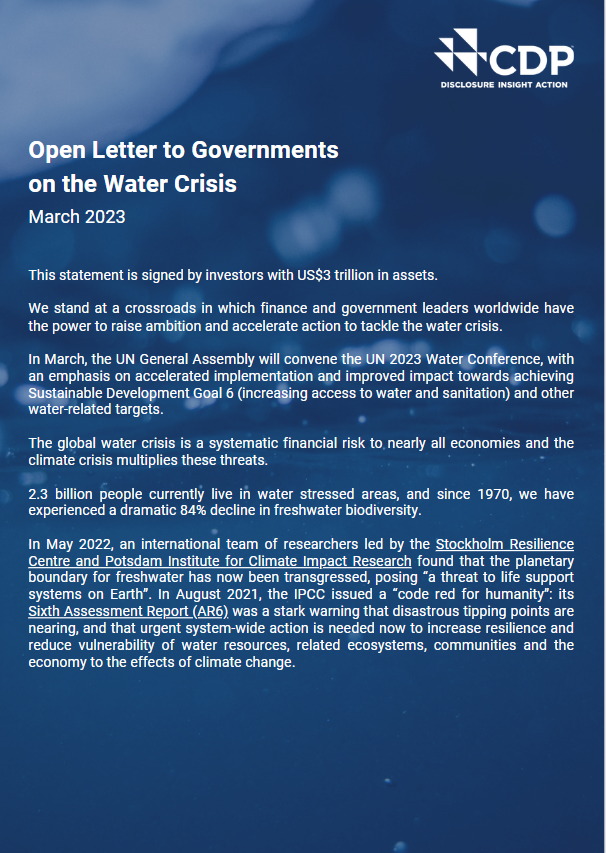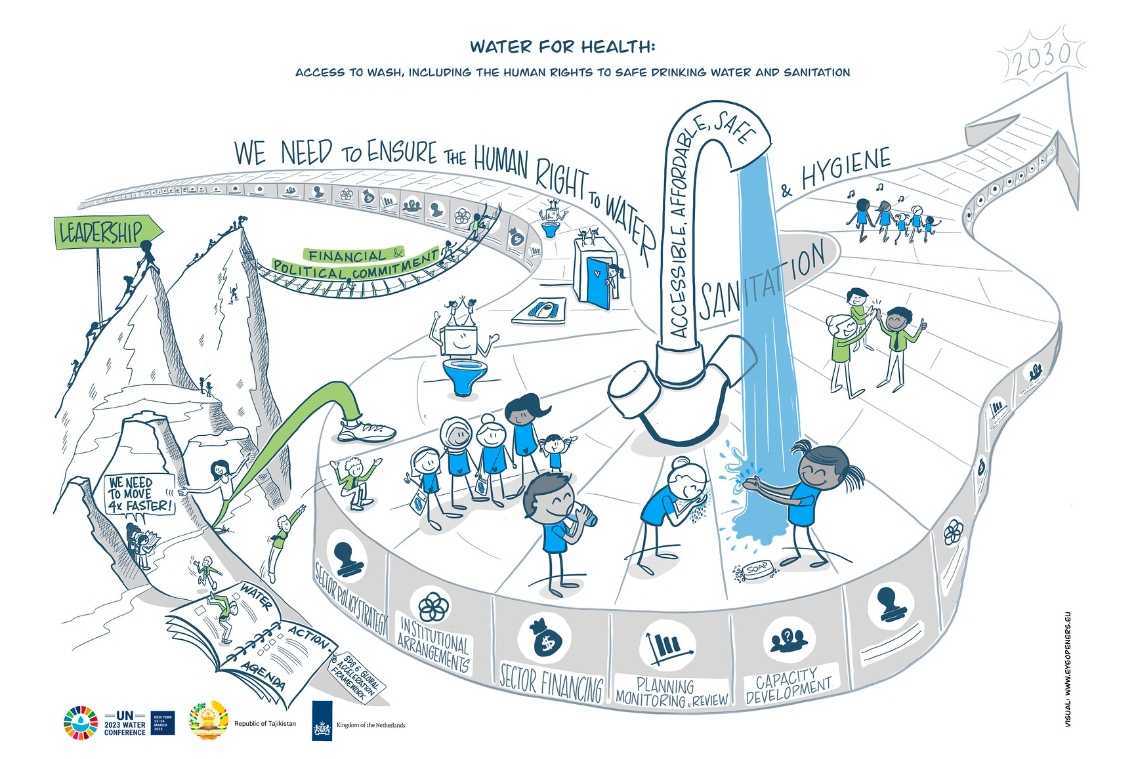What’s it really mean for water?

The UN Water Conference was held last month in New York – 46 years after the first similar event in 1977. The aim of the Conference was to develop momentum to deliver SGD 6 Water and sanitation for all – an SDG which is not on track to meet its targets.
There’s no doubt it was an important event, but what it all means depends a lot on who you ask and what happens next.
One of the more important things was the release of a report by the UN Global Commission on the Economics of Water, which stated:
“We will fail on climate change if we do not solve water. We will also fail on all the Sustainable Development Goals (SDGs).”

The report painted a backdrop of the world facing a 40% shortfall in demand for water by 2030 (a figure which the World Resources Institute puts at 56%) and a need to increase agricultural production by 50% by 2050 to feed the world’s people. It also included this conclusion:
“There will be no agricultural revolution unless we fix water”

The Commission’s conclusion about the fundamental dependence of climate mitigation and adaptation on water is similar to that of the report of the Stockholm International Water Institute, whose report released on the eve of COP 27 stated:
“Mitigation cannot succeed without water”
So what was achieved at the Conference, and what can we expect in the global effort to secure the future of water?
The focus of the Conference was developing a Water Action Agenda, which is composed of voluntary commitments from UN Member States and stakeholders. These pledges address a broad set of themes aimed at creating partnerships and cooperation towards shared urgent, immediate, and accelerated action, water financing and ESG disclosures, and establishing a strong international mechanism to prevent the global water crisis from spiralling out of control.
719 commitments were received up to the commencement of the Conference. About 43% of these commitments came from non-Government organisations, compared to 26% from governments. One commitment from CDP included a pledge by 1,800 companies to invest US $436B in 2,700 water-smart projects by 2028.
But according to the World Resources Institute:
“…while more than one-quarter of the commitments are potential game-changers, the rest may not be strong enough to create substantial change in the world.”
Unlike many UN conferences, there was no negotiated text outlining global commitments to improving water outcomes. The longer term impact of the Conference will depend very much on how momentum is built from it, particularly at the UN’s SDG Summit in September, Summit of the Future in 2024, and the World Social Summit in 2025.
An essential element in building better outcomes for water will be addressing many of the causal challenges for water that arise from inequality, for example in gender equality, disability and social inclusion (GEDSI) and also for indigenous peoples. One of the important inputs to the Conference was a declaration, signed by 75 indigenous organisations from across the globe:
“Indigenous Peoples commit to actively engage, coordinate and plan with national, regional and local governments as well as UN bodies, based on their full recognition of our rights and respect for the value of our contributions, in order to produce positive results for the protection of water, and promote solutions that benefit our future generations, the natural world and all humanity.”

Water Stewardship will be an important part of building momentum and making change to secure the future of water, and featured strongly in conference discussions. There were also calls for further integration of water into the ESG space, including an open letter to governments from 31 investors, representing US $3 trillion, calling on them to:
“Commit to implementing mandatory water disclosure requirements aligned with international best practice recommendations, including Target 15 of the new Global Biodiversity Framework”
Perhaps the most heartening outcome of the conference was the extent to which global players recognised water as inextricably interwoven into all aspects of the environment, society and the economy. Water is a classic ‘wicked problem’ and will need sustained and significant effort by all players to secure its future for the benefit of all.


